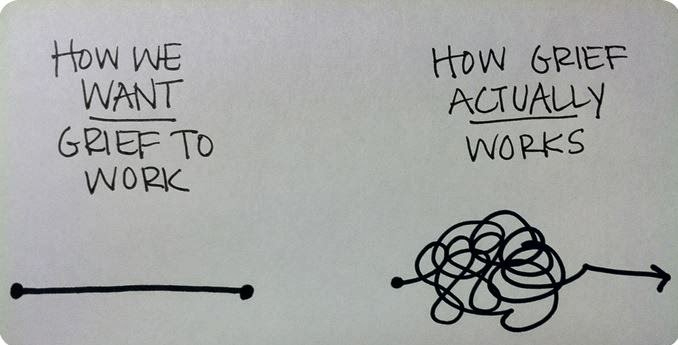
I was utterly amazed at the questions people plied me with not long after Dominic’s accident.
They ranged from digging for details about what happened (when we ourselves were still unsure) to ridiculous requests for when I’d be returning to my previous responsibilities in a local ministry.
Since then, many of my bereaved parent friends have shared even more questions that have been lobbed at them across tables, across rooms and in the grocery store.
Recently there was a post in our group that generated so many excellent answers to these kinds of questions, I asked permission to reprint them here (without names, of course!).
So here they are, good answers to hard (or inappropriate or just plain ridiculous) questions:
When asked to do something the week or month or even year after your child left:
- No. (It’s a complete sentence. You do not have to give an explanation.)
- Thank you for asking me. I won’t be able to participate this time.
- I’m so sorry. This is a hard time of year for me and I just can’t do it.
- Since my son’s accident, I don’t do well at holidays (or summer, or birthday month). I can’t take on any extra responsibilities right now.
- I’m sorry, we will be out of town. (If you really WILL be out of town.)
When asked about the details of your child’s death:
- Why do you ask? (Stops them nearly every time.)
- That’s an uncomfortable question that I’d rather not answer.
- Does it matter?
- We choose not to talk about his/her death and prefer to talk about his/her life. Would you like to know something about him/her?
- I prefer not to relive that trauma, thank you.
When asked, “How are you?”:
- About as well as you would imagine given the circumstances.
- Managing to do what must be done but very sad my son (or daughter) is no longer here with me.
- Trying hard to put the pieces back together. It’s a struggle every day.
- Our family is loving one another through the hardest thing we’ve ever experienced.
- How are YOU? (Most won’t even notice you didn’t answer and will launch into their own discourse.)
When asked if you think you’re “back to normal” or “over it”:
- No. (It’s a complete sentence, see above.)
- I’ll never be over my child. I’m not over any of my children. How could I be?
- My life has been shattered. I can’t even find all the pieces much less assemble them into whatever normal used to be.
- I don’t remember what “normal” is.
- It’s a daily adjustment that I will be making for the rest of my life.
When asked anything at all that seems insensitive, inappropriate or just downright nosey:
- I’m so sorry, I need to go. Bye!
- I can’t talk about that now.
- Say nothing. Absolutely nothing. Until they change the subject for you.
- How are you? Your children? (Or any other question back at them-ignoring theirs)
I am obligated (by my profession of faith) to be as kind and polite as I can be but I am not obligated to answer every question someone asks.
I’ve found that having some of these pat answers in my pocket helps. Many of them are good for just about any question that may come my way.
I try to deflect, demur or redirect.
But when that fails I’m just as likely to tell the truth, which is often not at all what the person really wants to hear.
And then they are left scrambling for a way out of a conversation I never wanted to have in the first place.
Which is fine with me.
Read the original article with lots of interesting followup comments.
